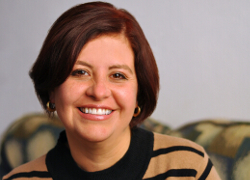It is not “IF”… It is “When”…
Disasters happen for everyone at some point in their lives
 A sudden critical illness, incapacitation, or even death. It happens in every family at some point, and nothing can prevent the shock and distress.
A sudden critical illness, incapacitation, or even death. It happens in every family at some point, and nothing can prevent the shock and distress.
What you can do though is make it easy for those around you to find critical documents and key information at a time when they are struggling.
To set up a mini Personal Disaster Recovery Plan follow these three simple steps:
- Inventory
A complete inventory of your possessions will fast track any insurance claims. Your inventory can consist of a physical list stored outside your residence, or pictures or videos uploaded to a secure digital location (such as a Dropbox folder). Regardless of the method used, the more details and specifics included in your list (makes, models, serial numbers), the better.
Keep a track of your assets and property in a digital form (such as the same Dropbox folder) as well as keeping the important papers in one location. - Keep your Papers Safe
Important documents, such as Wills, Trust Deeds, Birth Certificates, Insurance Policies etc. ideally should be stored somewhere outside of your home for easy retrieval if your house is destroyed, although that is not always practical.
You should electronically scan or copy those documents though and save those in a secure digital location so at least you have records of original documents if the real ones are lost. If you don’t have a scanner, take photo’s with your smartphone! - Know Your Numbers
There will probably be a lot of calls and organisations to contact in the event of a personal disaster, so make it easy for the people looking after your affairs to find the key numbers. Keep critical numbers handy, including phone numbers of family and friends, as well as:- All insurance policy details and numbers
- Drivers license number, passport details and any other official identification details
- Bank account numbers and account names
- Professional advisers’ contact information (lawyer; accountant; financial adviser; doctor; etc)
- Passwords
As with all other critical data, these numbers must be kept in a remote but accessible location, on your mobile phone, or in secured digital format. And tell at least a couple of people where you've stored them perhaps your partner, spouse, children, or a trusted friend.
Work on the theory that it is “when…not IF…” and things will be much easier for everyone.
- Last updated on .